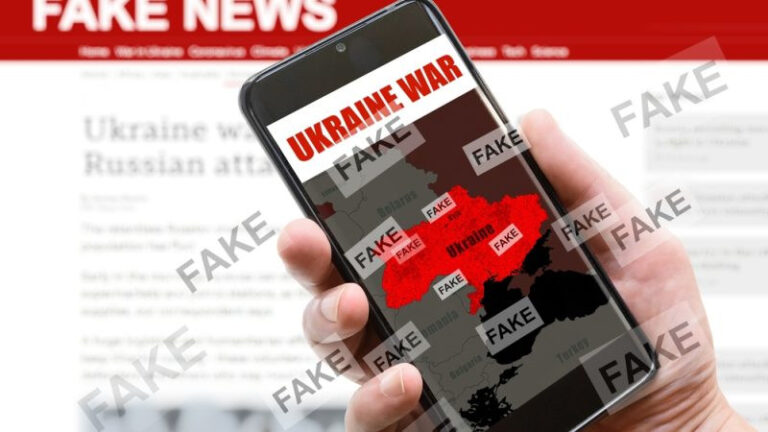Russian propaganda has been actively spreading a lot of disinformation about the EU and European leaders in order to undermine the morale of Ukrainians, but has failed to influence their pro-European intentions.
During the June EU elections, Europe was actively preparing to counter Russian disinformation, but Russia used the opportunity to further sow doubt and distrust among Ukrainians towards European countries.
Join us on Telegram
Follow our war coverage at @Kyivpost_official.
Ukrainian fact-checking organizations have recently observed a significant increase in fake news about the EU, the European Parliament elections and elections in European countries, the main goal of which was to create a negative image of the EU, undermine the morale of Ukrainians and show that they no longer have help and support from Europe.
For example, Kremlin media is actively spreading the narrative that the European elections will lead to a situation “similar to the collapse of the Soviet Union.”
Regardless of which party’s candidates are elected to the European Parliament, Russian media reported that the new balance of powers would lead to “the collapse of the European Union, at least since it has gone far beyond its status as an interest group.”
“Any election in a country of interest to Russia will undoubtedly be a target for Russian attacks. One only needs to watch Russian television to see who the Kremlin considers Russia’s friends and who it considers its enemies,” said Ruslan Deynichenko, co-founder and executive director of the Stop Fake Project.
Other topics of interest
My Pacifist Dilemma
There was a time when I considered myself a pacifist, but I got tired of watching ordinary people being slaughtered and decided to do something about it.
For example, in the Ukrainian information space, social media spread fake news such as that Emmanuel Macron’s party would offer 100 euros to every French citizen who voted for it in the parliamentary elections, or that on the eve of the elections, EU politicians had been “hit by the fascist virus” and the EU was “ready to follow in Hitler’s footsteps.”
Ukrainian social media was also filled with reports of protests in various European countries and highlighting the violent dispersal of participants. Russian Telegram channels stressed that the EU is undemocratic, does not respect people’s rights and imposes censorship.
Russia also spread fake news aimed at undermining relations between European countries and Ukraine, claiming that all Europe needs from Ukraine are resources, such as a video of a German farmer assessing the quality of Ukrainian soil with the comment, “This is exactly why there is a war in Ukraine.”
Another narrative that has begun to emerge more and more in Ukrainian-European relations is that Europeans are interested in the continuation of the war in Ukraine, while Ukrainians want peace. This fakery also includes denunciations of political forces that advocate continued support for Ukraine.
Spread by popular Telegram channels, popular discussion bots, and Russian and pro-Russian media, such disinformation aims to make Ukrainians lose faith in Europe.
But Russia has not been successful because Ukrainians remain overwhelmingly pro-European, as opinion polls consistently confirm.
Two-thirds of Ukrainians consider EU membership as important as NATO membership, according to a survey published in July by the European Council on Foreign Relations, which also showed that Ukrainians have a much more favorable view of the EU’s role in the war than EU citizens.
A survey on Ukrainians’ attitudes towards the EU conducted by the Ilko Kucheriv Foundation for Democratic Initiatives also noted that the majority of people associate the EU with the positive aspects that were difficult to realize in Ukraine due to the war: the freedom to travel, study and work anywhere in the EU (49%), quality of life for future generations (44%), economic prosperity (39%), social security (35%), democracy (34%) and peace (33%).
Therefore, there is no evidence that Russian attempts to worsen perceptions of European countries among Ukrainians have been successful.
Ukrainian authorities are also convinced that, despite all the propaganda, Russian plans in Europe will not succeed.
“We have no choice but to help Ukraine win and ensure the defeat of Russian aggression. Otherwise, the national security of our partners is at risk. This applies to Europe, the United States and the rest of the world,” Ukrainian Foreign Minister Dmytro Kuleba stressed in July.
“If Russia (pro-Russian political forces opposed to aiding Ukraine) gains a majority in the European Parliament, this could be seen as a victory for Russia. Why? To make it easier for them to achieve their aims of obstructing aid to Ukraine, undermining European stability and weakening the EU,” said Olha Yurkova, co-founder of the Stop Fake Fact Checking project.
“Unfortunately, while these political forces have strengthened their position to some extent, they are not in the majority,” she said.
This article is part of the FREIHEIT media project on the European Neighbourhood, funded by the European Media and Information Fund (EMIF).
[Edited by Alexandra Brzozowski/Zoran Radosavljevic]


